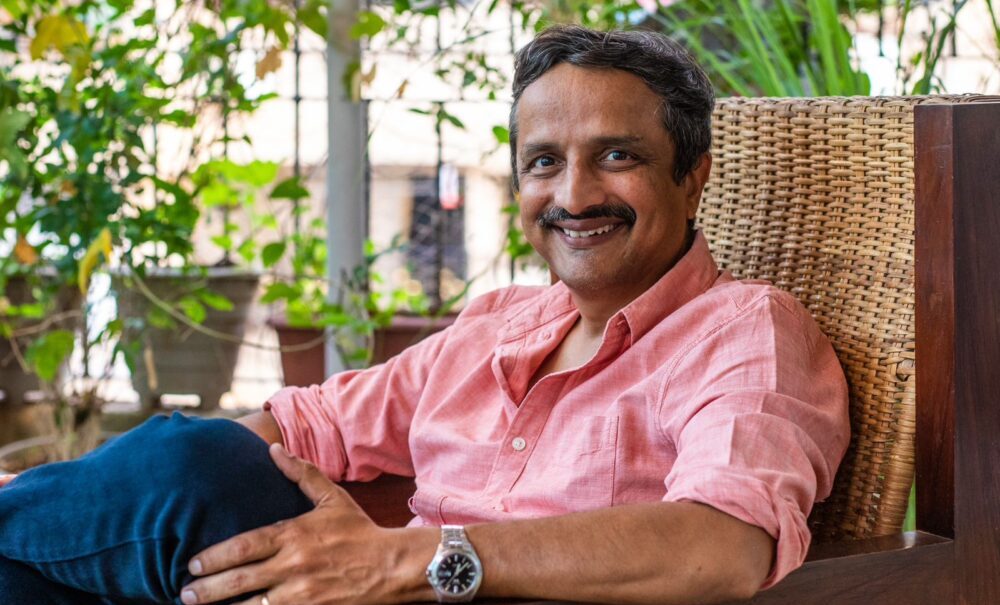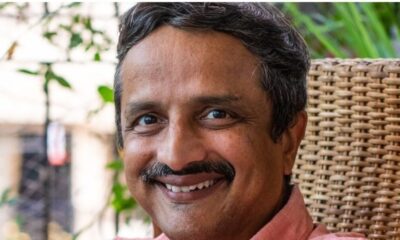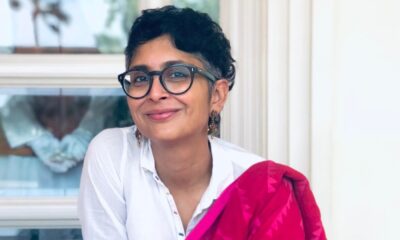Exclusives
Satyajit Bhatkal on joining the jury of ALT EFF: “It gave me an opportunity to engage with the most important question of our times”
Satyajit Bhatkal is a national award-winning director known for making Chale Chalo and Satyamev Jayate.
Published
5 months agoon

Satyajit Bhatkal won the national award for his documentary Chale Chalo which chronicled the making of Ashutosh Gowariker’s Lagaan starring Aamir Khan. Years later, Bhatkal director Satyamev Jayate, a TV show hosted by Aamir Khan which addressed social issues in India. Bhatkal continues to work as the CEO of Paani Foundation started by Aamir Khan and his ex-wife Kiran Rao. The filmmaker recently joined the jury of All Living Things Environmental Film Festival. In an interaction with Cine Blitz, Bhatkal talked about his experience with ALT EFF, climate change, Satyamev Jayate, and Paani Foundation.
What made you say yes to joining the jury of the All Living Things Environmental Film Festival (ALT EFF)?
Satyajit Bhatkal: Climate change and the environmental crisis is the biggest challenge facing humans as a species – no matter what our profession is or in which part of the world we live in. The ALT EFF Festival engages with this crisis through films. Joining the jury gave me an opportunity to engage with the most important question of our times via a medium I love. So, saying yes was the only reasonable answer.
ALT EFF is using cinema to start a conversation on climate change and sustainability. How exactly is it managing to do that? (Any initiatives on the side?)
Satyajit Bhatkal: I do not represent ALTEFF. You would need to speak to Kunal Khanna or Laura for this.
Also read: Shiv Panditt on his film Shastry Virudh Shastry: “I cried when I saw the rushes of the film”
Which films from the festival selection moved you and why?
Satyajit Bhatkal: Many films from the selection were extremely moving. Some of which I can recall were: ‘We Are Guardians’ from the International Features, ‘Haulout’ and ‘From Dreams to Dust’ in the international shorts category, ‘No Water No Village ‘and ‘Tiger Army’ in the Indian short films, and ‘Once there was a Sea’ and ‘Egret River’ in the animated films. Each of these films have different themes and different strengths but a common feature that drew me to them was they all reminded us of the interconnectedness of all forms of life and how fragile this relationship has become and the catastrophic consequences of this weakening of our common bonds.
Any other films outside of the festival on any other subject that you found to be good conversation starters?
Satyajit Bhatkal: I suppose you are asking about films on environmental issues. There is a film in Marathi on Non-Pesticide Management in agriculture called ‘Shetkaryancha Sholay’ which is wildly entertaining and informative and is available on YouTube.
How do you view the climate crisis in the world? It requires collective action but on a personal level, what do you do to live a sustainable life?
Satyajit Bhatkal: I agree with you that collective action must begin at the individual level. I think what I do to live a sustainable life is too small for it to be mentioned. At the highest, I can say I try and fail and try some more.
Also read: Director Dibakar Das Roy opens up about his film Dilli Dark which premiered at Jio MAMI Film Festival
In my personal view, activism is surrounded by a façade too. For example, national executives flying in from all over the world burning massive quantities of fuel to attend a conference on ‘climate change’ or film stars/sportspersons talking about saving the environment while they fly in private jets and firecrackers are being burnt at sports events. Do you have a take on this façade?
Satyajit Bhatkal: I think your point is very well taken. Having said that we should not allow the noise to distract from the conversation. Because the crisis is far bigger than activists and conferences and facades. It is an existential crisis and finger-pointing is not going to help solve it. Nobody actually occupies the moral high ground here. As a species, we have failed Mother Earth. We are now in grave danger of failing ourselves.
Starting a conversation through a creative medium is not new to you. In retrospect, what were the key conversation starters in Satyamev Jayate that brought in a change?
Satyajit Bhatkal: The first is that we attempted to carry on the conversation in a tone of love where the thought was that all of us to a lesser or greater extent are responsible for our social problems so let us all come together to solve them. The second is the appeal was emotional: “Dil pe lagegi tabhi baat banegi” was the tagline of the show. The third is that awareness of various problems was created primarily by first-person testimony of people who had suffered from these problems. It is their stories that made the show engaging. They were the real heroes of the show.
Also read: Farrey Review: A compelling watch
Paani Foundation has done great work in Maharashtra. Do people respond better to an Abhineta than to a Neta? How do you view the role of intent and collective support in doing any kind of social work?
Satyajit Bhatkal: This is a really big question to answer but let me try. I think that a popular neta or abhineta can at the highest ensure a turnout at an event. That is unlikely to turn into actual work on the ground unless the people perceive that their actions will lead to tangible improvements in their life. The attempt of the Paani Foundation has always been to mobilise intent and collective support from the farmers and villagers so that they may by their own sweat and knowledge and effort to transform their own lives. Hundreds of billions of litres of water storage capacity have been created by tens of thousands of active villagers so that they may become drought-free. All this has been done by the villagers themselves. Paani Foundation at the highest has been a catalyst.
Are you working on a film/series? What can you tell about the same at this moment?
Satyajit Bhatkal: I would love to write a film or a series but the work at Paani just keeps growing and doesn’t give me the time to do this. It’s a happy problem to have.
You may like


All Living Things Environmental Film Festival (ALT EFF) Programming Head Anaka Kaundinya opens up about the festival


Actors Sayani Gupta and Shriya Pilgaonkar Appointed as Goodwill Ambassadors for ALT EFF


Alia Bhatt to advocate for the environment, joins hands with India’s largest environmental film festival


Director of Aamir Khan’s Satyamev Jayate, Satyajit Bhatkal Joins Jury Panel for ALT EFF 2023


Oscar winning filmmaker Kartiki Gonsalves elected to the jury for All Living Things Environmental Film Festival (ALT EFF)


Kiran Rao to helm the jury of All Living Things Environmental Film Festival (ALT EFF)












